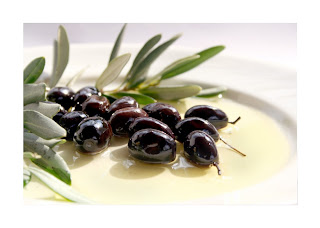- provide needed energy
- allow you to absorb vitamins A,D,E,K and prevent deficiencies in these vitamins
- helps food to stay in the stomach longer, giving a greater sense of satisfaction and preventing hunger soon after meals
- may help your body produce endorphins (the substances that make you feel good)
- provide flavor and texture to help prevent food from being bland and dry
- compose 60% of the brain and are essential to brain function, including learning abilities, memory retention and moods. Fats are especially important for pregnant women, since they are integral to fetal brain development.
But before you go out and start justifying the three Big Mac meal you just bought from McDonald's, you have to realize that like anything, some are just better than others. So which fats are the best? Here are some over views of fats from helpguide.org.
Trans
-Trans fats are created by heating liquid vegetable oils in the presence of hydrogen gas, a process called hydrogenation. Partially hydrogenating vegetable oils makes them more stable and less likely to spoil, which is very
 good for food manufacturers – and very bad for you.
good for food manufacturers – and very bad for you.-Primary sources of trans fat are vegetable shortenings, some margarines, crackers, candies, cookies, snack foods, fried foods, baked goods, and other processed foods made with partially hydrogenated vegetable oils.
-Trans fat raises low-density lipoprotein (LDL or "bad") cholesterol that increases your risk of coronary heart disease (CHD), as well as lowering HDL, or good cholesterol.
Saturated
-usually solid at room temperature and have a high melting point
-primary sources are animals including red meat and whole milk dairy products as well as tropical vegetable oils such as coconut, palm and foods made with these oils
-saturated fat raises low-density lipoprotein (LDL or "bad") cholesterol that increases your risk of coronary heart disease.
Un Saturated
- Monounsaturated
 -liquid at room temperature and turn cloudy when kept in refrigerator.
-liquid at room temperature and turn cloudy when kept in refrigerator.-primary sources: plant oils- like canola, peanut, and olive oil. Other good sources include
avocados, nuts, and seeds
-many who follow a traditional Mediterranean diet have foods high in monounsaturated
fat and tend to have lower risk of cardiovascular disease
- Polyunsaturated
-liquid at room temperature as well as at cold temperature
-primary sources are sunflower, corn, soybean, and flaxseed oils and also found in foods such as walnuts and fish.
-this fat family includes the Omega-3 group of fatty acids which your body can't make and are found in very few foods
2 comments:
I found this information interesting mainly because I had a friend in the past that would not eat because of his fear of gaining weight. He was always worried about fat content and nutritional facts. There is nothing wrong with making good healthy choices but he was sick quite often due to not getting enough nourishment. People should not be so fearful of fat but to look for good fats like the ones recommended in your article.
Thanks for the information! I was just talking to a friend about fats and picking the best ones. Now I know more of what I should be eating!
Post a Comment